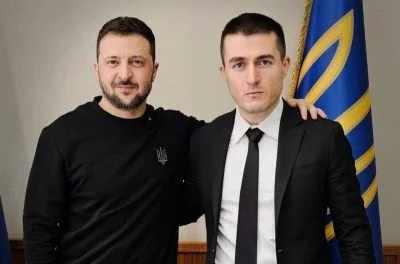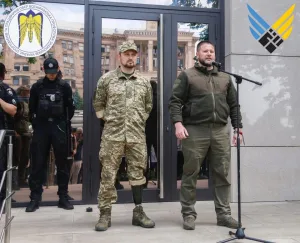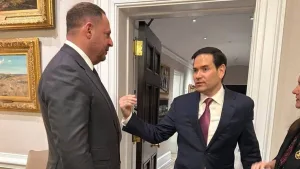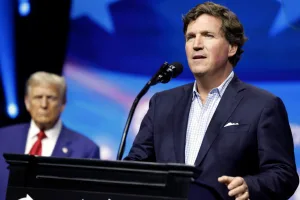I listened to Volodymyr Zelensky’s interview with American podcaster Lex Fridman. Three hours is a lot, but I’m a professional.
By the way, I really liked Fridman: intelligent, educated, and well-mannered, while also holding his own views (and his own stereotypes). He’s not like Tucker Carlson, who doesn’t try to understand his interlocutor but seeks confirmation of his own beliefs.
I view the interview as an attempt by the Office of the President to convey to U.S. citizens and Donald Trump’s circle that Volodymyr Zelensky is ready for peace negotiations, but only in conjunction with providing Ukraine with real security guarantees and conducting peace talks from a position of strength. A strength that the U.S. President must demonstrate – who else, after all?
Most likely, the need to clarify Ukraine’s position is what Andriy Yermak brought back from his visit to the U.S. Zelensky was clearly making a great effort to fulfill his role.
In essence, I consider the intent behind such an informative interview both correct and very timely. However, regarding its execution, I have some remarks. And it’s not about the fact that our president used strong language or openly stated that he despises not only Putin personally but also the Russian people, who idolize their Kremlin führer.
First, the interview was excessively lengthy and verbose. Even for someone like me, who is closely involved in the events, it was difficult to follow the trajectory of our president’s thoughts as they jumped from episodes of the past to visions of the future and back to personal experiences and assessments.
Second, as a piece of explanatory material, the interview was overly emotional. It lacked clear, rational arguments as to why the U.S. and President Trump should act in the way President Zelensky envisions. There were more than enough courtesies extended to Trump, Musk, and others, but a solid analysis of the current situation was noticeably sparse.
Third, it was unnecessary to depict Putin as a rabid dog or a madman with whom negotiation is impossible. Unfortunately, in the U.S., they don’t see him that way. There, Putin is viewed as a dictator acting in his country’s interests, albeit through entirely illegal means, with the support of the Russian people. They negotiated with Stalin, and now they’ll negotiate with Iran’s ayatollahs. In other words, Putin as perceived by Ukraine and Putin as perceived by the U.S. are two different figures, but the interview didn’t account for this.
Now, my personal psychological observations. Overall, I saw that Volodymyr Zelensky is absolutely convinced of the correctness of all his actions. Together with his six managers, he carries the entire burden of the war and does not believe he deserves any criticism. Criticism, at best, stems from ignorance of the extremely difficult circumstances under which the Ukrainian government operates, and more often, such criticism is a tool of the aggressor aimed at dismantling Ukraine.
Lastly, I became convinced that Zelensky is unequivocally planning to run for a second term. The only obstacles could be peace conditions that Ukrainian society perceives as capitulation, or if the president’s wife is categorically opposed to his second term.
One way or another, the peace process is slowly advancing, and Zelensky’s interview serves as confirmation of this.
Tags: Analytics Ukraine Volodymyr Zelenskyy




















